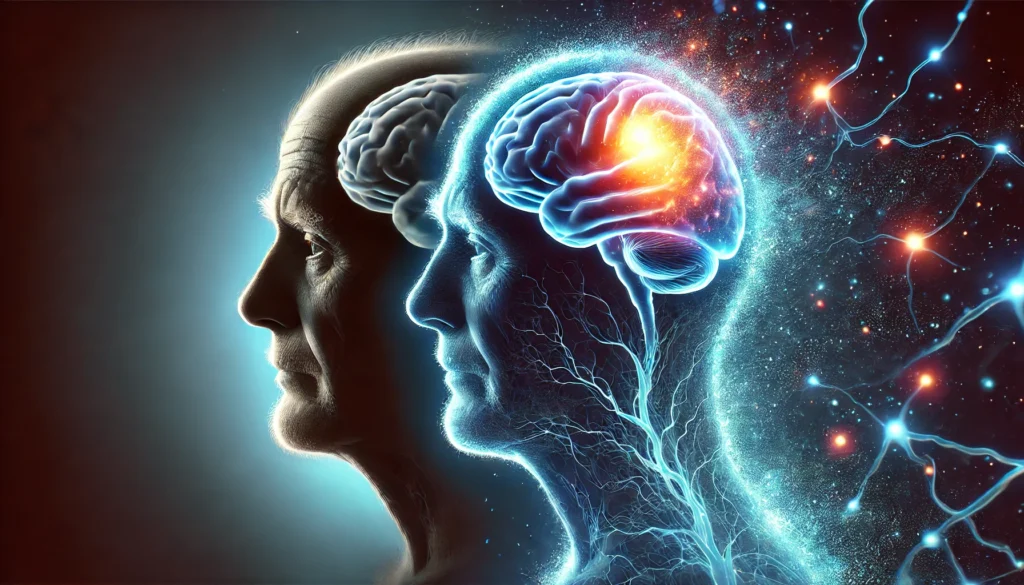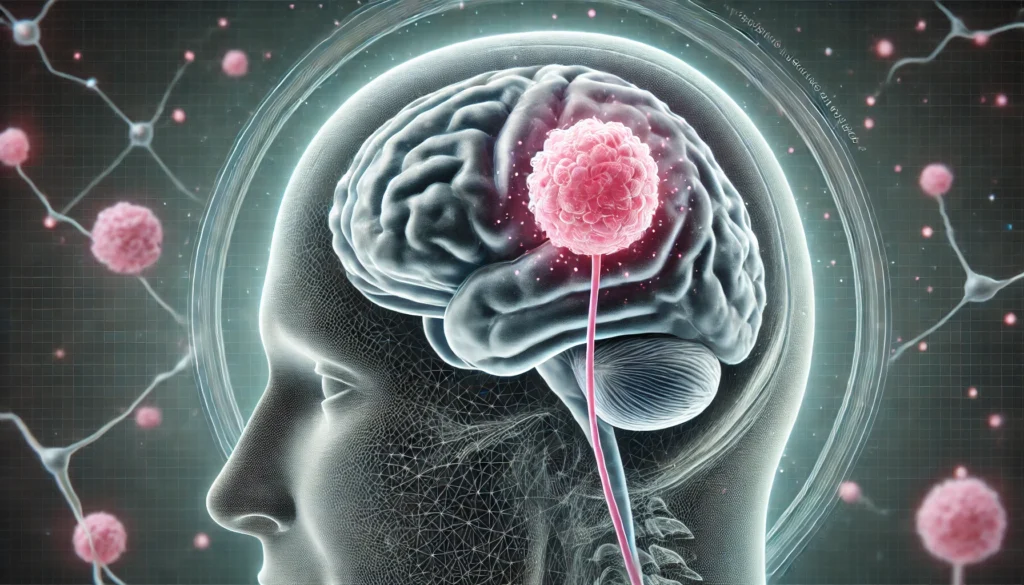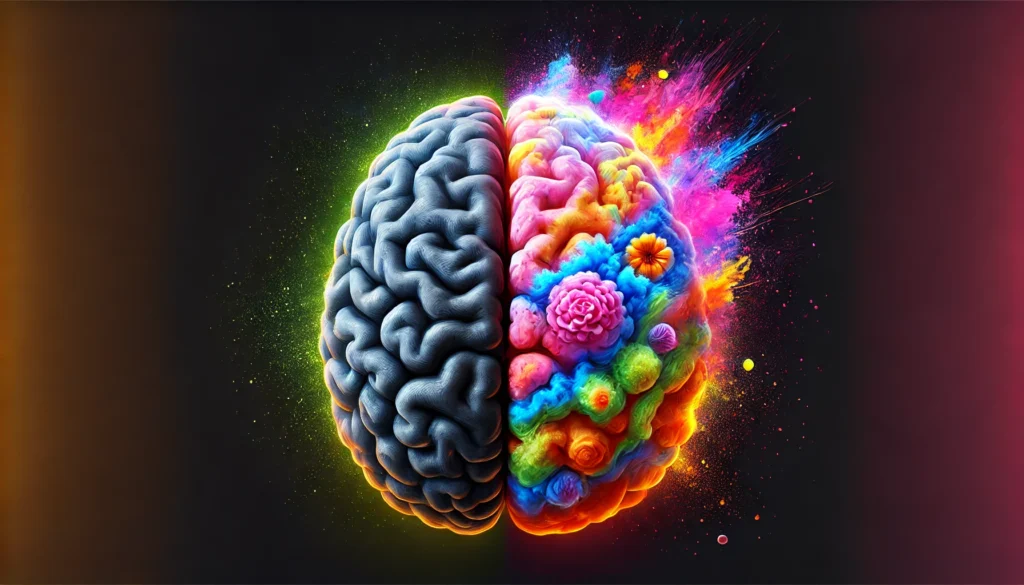Before delving into the relationship between brain tumors and dementia, it is essential to grasp the fundamental nature of these two conditions. Each has its own unique characteristics and challenges, and understanding these can provide a foundation for further exploration of their connection.
You may also like: Tips to Improve Low Average Memory Performance
Brain Tumors
Brain tumors are abnormal growths of cells within the brain or central spinal cord. These growths can vary significantly in terms of their biological behavior, leading to diverse clinical outcomes.
Types of Brain Tumors
Brain tumors can be classified as benign (non-cancerous) or malignant (cancerous). Benign tumors, while less aggressive, can still pose significant health risks due to their potential to disrupt normal brain function. Malignant tumors, on the other hand, tend to grow rapidly and invade surrounding tissues, often leading to severe neurological impairments.
Symptoms and Diagnosis
The symptoms of brain tumors can vary widely, depending on the tumor’s type, size, and location. Common symptoms include headaches, seizures, and changes in cognitive or behavioral function. Diagnostic tools such as MRI and CT scans are critical for detecting and assessing these tumors, allowing for timely intervention.
Impact on Brain Function
The impact of brain tumors on brain function largely depends on their location. Tumors situated in areas responsible for cognition, memory, or motor skills can lead to significant functional impairments. Understanding the specific areas affected by a tumor can help healthcare providers develop targeted treatment plans.
Dementia
Dementia, on the other hand, is a broad term used to describe a decline in cognitive function severe enough to interfere with daily life. It encompasses a variety of conditions, each with its own set of challenges and implications.
Types of Dementia
There are several types of dementia, with Alzheimer’s disease being the most common. Other forms include vascular dementia, Lewy body dementia, and frontotemporal dementia. Each type has distinct characteristics and progression patterns, requiring tailored management strategies.
Symptoms and Progression
Symptoms of dementia include memory loss, confusion, impaired judgment, and changes in personality. As the condition progresses, these symptoms can become more pronounced, severely impacting an individual’s ability to perform daily activities and maintain independence.
Diagnosis and Management
Diagnosing dementia involves a combination of cognitive assessments, medical history evaluations, and imaging studies. Early detection is crucial for managing symptoms and slowing disease progression. Management strategies often involve a combination of medication, lifestyle changes, and cognitive therapies.

Exploring the Connection
Recent studies have begun to shed light on the potential connections between brain tumors and dementia, offering new insights into how these two conditions might interact. Understanding these interactions is key to developing more effective treatments and improving patient outcomes.
Physical Impact of Tumors
One of the most direct ways brain tumors can contribute to dementia-like symptoms is through their physical impact on brain tissue.
Compression and Infiltration
Tumors can compress or infiltrate regions of the brain responsible for memory, judgment, and other cognitive functions. This physical interference can lead to symptoms that closely mimic those of dementia, complicating diagnosis and treatment.
Neurodegenerative Changes
In some cases, the presence of a brain tumor can initiate or exacerbate neurodegenerative changes within the brain. This can lead to a progression of cognitive decline that mirrors the trajectory of certain types of dementia.
Case Studies and Clinical Observations
Numerous case studies and clinical observations have documented instances where brain tumors have directly led to cognitive impairments resembling dementia. These cases highlight the importance of thorough neurological assessments in patients presenting with cognitive symptoms.
Treatment-Induced Cognitive Decline
The treatment of brain tumors, including surgery, radiation, and chemotherapy, can also lead to cognitive decline. This phenomenon presents unique challenges for both patients and healthcare providers.
“Chemo Brain” Phenomenon
Known as “chemo brain,” this cognitive dysfunction can manifest as memory lapses, difficulty concentrating, and impaired executive function. These side effects can sometimes resemble or exacerbate dementia symptoms, making it challenging to differentiate between the effects of the tumor itself and the treatment.
Post-Radiation Cognitive Dysfunction
Radiation therapy, while effective in targeting tumor cells, can also damage healthy brain tissue, leading to cognitive impairments. Understanding the risks and benefits of radiation therapy is crucial for optimizing patient outcomes.
Strategies for Mitigating Cognitive Side Effects
Researchers and clinicians are actively exploring strategies to mitigate the cognitive side effects of brain tumor treatments. These include the use of neuroprotective agents, cognitive rehabilitation programs, and personalized treatment plans.
Shared Risk Factors
Another intriguing aspect of the relationship between brain tumors and dementia is the presence of shared risk factors. Identifying these factors can help in understanding the potential overlap between these conditions.
Genetic Predispositions
Both brain tumors and dementia have been associated with genetic predispositions. Certain genetic mutations and familial histories can increase an individual’s risk for developing these conditions, highlighting the importance of genetic counseling and testing.
Environmental Influences
Environmental factors, such as exposure to certain chemicals or radiation, have been linked to an increased risk of both brain tumors and dementia. Understanding these influences is crucial for developing preventive strategies and reducing overall risk.
Lifestyle and Health Factors
Lifestyle factors, including diet, exercise, and overall health, can also play a role in the development of brain tumors and dementia. Promoting healthy lifestyles and addressing modifiable risk factors can contribute to better outcomes for at-risk populations.
Historical Context and Current Trends
Our understanding of the link between brain tumors and dementia has evolved significantly over the years, influenced by advances in medical imaging, genetics, and neuroscience. These developments have paved the way for new research directions and treatment approaches.
Historical Perspective
Historically, the connection between brain tumors and cognitive decline was often overlooked or misattributed to age-related changes or other neurological disorders.
Early Misconceptions
In the early days of neuroscience, cognitive decline in the presence of brain tumors was often attributed to general aging or unrelated neurological conditions. This misunderstanding delayed the recognition of the direct impact of tumors on cognitive function.
Advances in Imaging Techniques
With the advent of advanced imaging techniques, such as MRI and CT scans, researchers have been able to observe more subtle changes in brain structure and function. These tools have been instrumental in identifying the specific ways in which tumors affect cognition.
Evolving Understanding
Over time, the scientific community’s understanding of the relationship between brain tumors and dementia has become more nuanced. This evolving knowledge has led to improved diagnostic criteria and more effective treatment protocols.
Current Research Trends
Today, research into the intersection of brain tumors and dementia is a rapidly growing field. Scientists are investigating the molecular and genetic underpinnings of these conditions, seeking to identify biomarkers that could predict cognitive decline in patients with brain tumors.
Molecular and Genetic Insights
Recent studies have focused on understanding the molecular and genetic mechanisms that link brain tumors and dementia. By identifying specific biomarkers, researchers hope to predict which patients are at higher risk for cognitive decline.
Novel Therapeutic Approaches
Innovative therapeutic approaches, such as targeted therapies and neuroprotective agents, are being explored to mitigate the cognitive impact of both tumors and their treatments. These strategies hold promise for improving patient outcomes and quality of life.

Collaborative Research Efforts
Interdisciplinary collaboration between neurologists, oncologists, and geneticists is driving progress in this field. By pooling expertise and resources, researchers aim to develop comprehensive strategies for managing the complex interplay between brain tumors and dementia.
Future Implications and Practical Advice
The ongoing research into the link between brain tumors and dementia holds promise for future advancements in diagnosis, treatment, and patient care. By staying informed and proactive, patients and caregivers can navigate these challenges more effectively.
Diagnostic Innovations
Emerging technologies, such as liquid biopsies and advanced neuroimaging techniques, may enable earlier and more accurate detection of brain tumors and dementia-related changes.
Liquid Biopsies
Liquid biopsies, which analyze biomarkers in bodily fluids, offer a non-invasive method for detecting tumors and monitoring disease progression. These tests have the potential to revolutionize early diagnosis and personalized treatment planning.
Advanced Neuroimaging
Advanced neuroimaging techniques are providing unprecedented insights into brain structure and function. These tools can detect subtle changes associated with cognitive decline, allowing for earlier intervention and improved patient outcomes.
Personalized Medicine
The integration of diagnostic innovations into personalized medicine approaches is paving the way for more tailored treatment plans. By understanding the unique characteristics of each patient’s condition, healthcare providers can optimize care and improve quality of life.
Therapeutic Developments
In terms of treatment, the future may bring targeted therapies that minimize cognitive side effects while effectively managing tumors.
Targeted Therapies
Targeted therapies, which focus on specific molecular pathways involved in tumor growth, offer a promising approach to treating brain tumors with fewer cognitive side effects. These treatments have the potential to improve both survival rates and quality of life.
Neuroprotective Agents
Research into neuroprotective agents aims to safeguard cognitive function during and after brain tumor treatment. These agents may help preserve memory, attention, and other cognitive abilities, reducing the impact of treatment-related side effects.
Cognitive Rehabilitation
Cognitive rehabilitation programs are being developed to support patients experiencing cognitive decline. These programs focus on enhancing memory, attention, and problem-solving skills through structured exercises and activities.
Practical Tips for Patients and Caregivers
For those currently navigating the challenges of brain tumors and dementia, practical advice can make a significant difference in quality of life. Patients and caregivers are encouraged to:
Stay Informed
Keeping abreast of the latest research and treatment options is essential for making informed decisions. Consulting reputable sources and healthcare professionals can provide valuable insights and guidance.
Engage in Cognitive Exercises
Activities such as puzzles, reading, and memory games can help maintain cognitive function. Regular engagement in these exercises can improve mental agility and reduce the impact of cognitive decline.
Prioritize Mental and Physical Health
A balanced diet, regular exercise, and adequate sleep are vital components of overall brain health. By prioritizing these aspects of well-being, patients and caregivers can support cognitive function and enhance quality of life.
Seek Support Networks
Connecting with support groups and counseling services can provide emotional and practical support. Sharing experiences and strategies with others facing similar challenges can foster a sense of community and resilience.

Conclusion
The link between brain tumors and dementia is a multifaceted topic that continues to intrigue researchers and healthcare providers. By unraveling the complexities of this relationship, we can work towards better diagnostic tools, more effective treatments, and improved support for those affected by these challenging conditions. As our understanding deepens, so too does our ability to offer hope and practical guidance to patients and their families.
In the end, while the road may be challenging, the pursuit of knowledge and the quest for better outcomes remain steadfast, lighting the way forward for future generations. Through continued research and collaboration, we can aspire to make a meaningful impact on the lives of those affected by brain tumors and dementia, offering a brighter future for all.
Further Reading:
Cognitive Changes After Cancer Treatment
The Relationship between Cancer and Dementia: An Updated Review
Important Note: The information contained in this article is for general informational purposes only, and should not be construed as health or medical advice, nor is it intended to diagnose, prevent, treat, or cure any disease or health condition. Before embarking on any diet, fitness regimen, or program of nutritional supplementation, it is advisable to consult your healthcare professional in order to determine its safety and probable efficacy in terms of your individual state of health.
Regarding Nutritional Supplements Or Other Non-Prescription Health Products: If any nutritional supplements or other non-prescription health products are mentioned in the foregoing article, any claims or statements made about them have not been evaluated by the U.S. Food and Drug Administration, and such nutritional supplements or other health products are not intended to diagnose, treat, cure, or prevent any disease.


